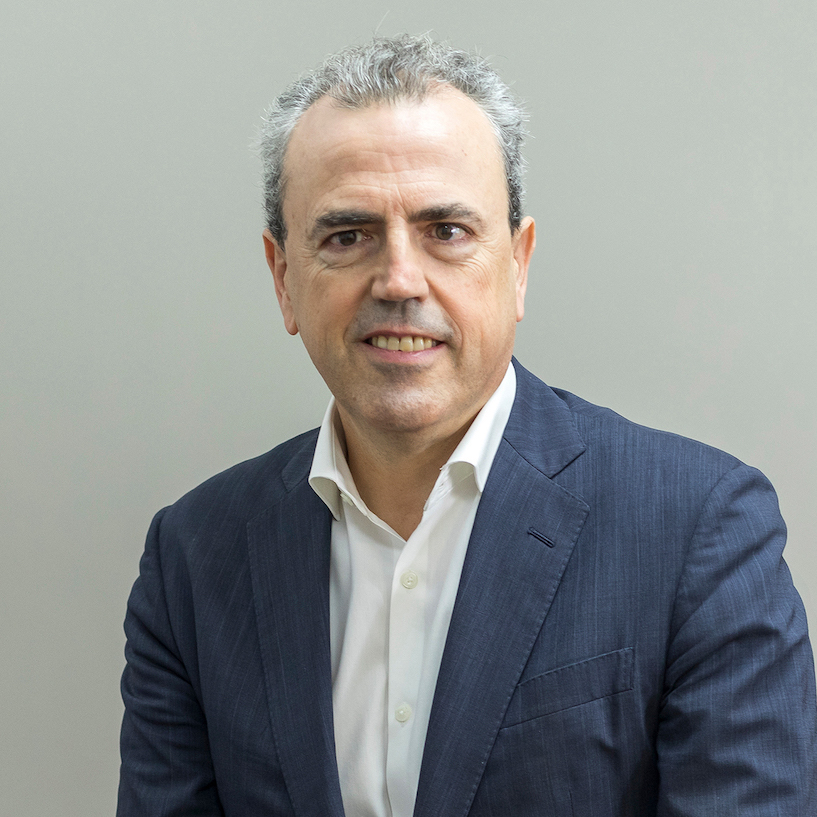Human Intelligence for Artificial Intelligence
By Fernando Móner Romero
President of AVACU
CECU Board of Directors

Consumer Associations, as a very active part of Civil Society, advocate discovering, innovating, searching, testing... but always analyzing the possible consequences of all these processes, and being an active part of this digital and sustainable transformation where the ethics of organizations is key.
There is no need to look to see where we are going, or where our environment is taking us, because there is no other way, and few in the world do not recognize the need to move towards sustainability in the direction set by the 2030 Agenda and the Sustainable Development Goals, within a shared process of social digitization, where citizen, business and government initiatives... are moving in that direction. This sustainable and digital transformation (which has already begun and has even accelerated) is one of the great challenges that we must share. And this or any other major challenge involves an incredibly important effort for organizations, from a small two-member family to a large company with 100,000 employees, from a small town of 300 inhabitants to large cities with millions of citizens.
And within this process, an AI expression emerges with force, which hides a revolution, a real revolution that we have begun to observe a few years ago and that is gaining strength, mainly in certain sectors where technology is one of the basic frameworks of this transformation we are talking about. And Artificial Intelligence should give us answers to complex problems and will also make us think about new questions that any revolution brings with it.
But what are some of our concerns and, of course, what we are passionate about Artificial Intelligence. We are passionate about it:
- The elimination of obstacles in communication between people from different countries who are already starting to be able to talk to each other thanks to artificial intelligence that allows immediate translation.
- New medical processes that allow non-invasive interventions while minimizing collateral damage.
- The detailed knowledge of doubts that human intelligence has been able to solve with the help of artificial intelligence.
- The mobility and transportation revolution, reducing the impact of human error
- ....etc.
But we should also be concerned about:
- A regulation to govern the ethical limits of Artificial Intelligence
- A transparent development of Artificial Intelligence where everyone, including social groups, can be protagonists and be vigilant of this development.
- Effective protection of citizens' rights and freedoms (privacy, data, etc.).
- Analyze the risks that the development of artificial intelligence may bring and generate a scale of these risks in order to set limits based on the risk potential.
- ...etc.
We are well aware of the advantages that artificial intelligence has brought in the 21st century, but we are also aware that there are darker parts that we must clarify and, above all, avoid opening paths whose risks may outweigh the advantages. I am not saying that we should not open horizons or stop traveling through space. I'm just saying that we should analyze the risks of decisions in a world such as Artificial Intelligence, of which we know very little... and not everything is good.
Nuestro mensaje es claro y también debe ser tranquilizador, puesto que muchas organizaciones sociales, la llamada «sociedad civil», queremos seguir disfrutando de los avances que a la Sociedad ha traído la Inteligencia Artificial. Pero queremos ser mucho más proactivos en los procesos de ese desarrollo, queremos saber dónde, cómo y cuando se está desarrollando, en qué se está investigando, cuáles son los miedos, las certidumbres… queremos ser partícipes para preservar los derechos de la ciudadanía, para evitar que los derechos fundamentales, los derechos humanos, puedan ponerse en entredicho, pero también para proteger la intimidad, los datos, el entorno de nuestras familias y amigos y, por eso, es unánime el grito de “transparencia” y de trabajo conjunto.
The Spanish government has promoted some important initiatives on artificial intelligence, such as the setting up of the first Artificial Intelligence Supervisory Agency (AESIA), by means of a royal decree approved last August, and the creation of a testing environment (sandboxes) to analyze the application of the future Artificial Intelligence Regulation. And, progressively, all member countries of the European Union will have to develop similar figures. This is one of the places where our participation should be offered and enhanced, because artificial intelligence is not only algorithms, software, hardware, data..., it is also and affects people with their rights and obligations.
Therefore, YES to Artificial Intelligence, but we must use Human Intelligence very well so that its development does not limit the rights of citizens, does not leave them unprotected, does not see dark areas... but that they are the real beneficiary of its development.
Consumer Associations, as a very active part of Civil Society, advocate discovering, innovating, searching, testing... but always analyzing the possible consequences of all these processes, and being an active part of this digital and sustainable transformation where the ethics of organizations is key.

Fernando Móner Romero, President of AVACU and member of the Board of Directors of CECU
President of the Valencian Association of Consumers and Users since 1997.
President of the Confederation of Consumers and Users (statewide) from 2008 to October 2022. Vice President of CECU from 1998 to 2008.
Currently member of the CECU Board of Directors.
Director of the Economic and Social Council of Spain.

